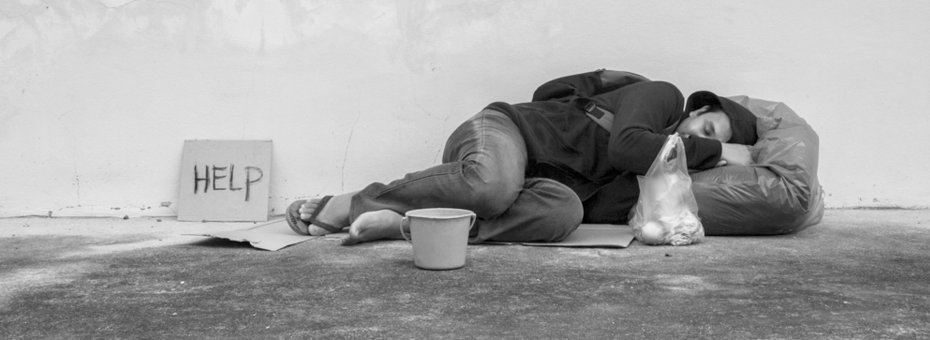Some of the most powerful lean lessons come from people I like to call “accidental lean thinkers” – leaders who successfully followed lean principles long before they had heard of the Toyota Production System. One such leader, who is unknown to the lean community, is Mauricio L. Miller, president and founder of Family Independence Initiative (FII), an anti-poverty organization. Miller’s commitment to respect for people is remarkably similar to Toyota’s, yet he’d never heard of lean until my father, Claude Stoller, saw the connection and introduced us in October.
In 2001, Miller, who grew up poor, was a respected leader in the social services sector, but was frustrated by the slow progress of the war on poverty. His experiences reflected census data showing that 75% of families living below the poverty line move above it, yet 50% of those relapse within five years. Seeing his efforts as only stopgap, he felt he had failed.
Things changed when Miller got an unexpected phone call from Jerry Brown, then the Mayor of Oakland, CA. Brown, who shared Miller’s frustrations, challenged him to come up with a plan for an organization that would give people what they needed to escape from poverty permanently. Miller wracked his brain for two weeks, eventually realizing that despite his 20 years running social services agencies, he didn’t have the answers. These, he felt, would have to come from the families themselves.
As he reflected, Miller recalled how his mother, Berta Miller, had struggled her entire life with poverty but had somehow found a way to save so Mauricio could attend University of California in Berkeley. Hardworking and entrepreneurial, she was a talented seamstress who made ends meet as a self-taught bookkeeper. What she had really needed was not the advice that social agencies customarily provide, but help acquiring a sewing machine. Unfortunately, nobody ever asked her.
It’s All About People
Miller also had data showing that it’s not lack of motivation but lack of resources that traps people in poverty. As well, those who do escape help others in their communities succeed, and they’re far better at this than outside agencies. None of this will be a surprise in the lean community, of course – we know that people at the gemba want to do a good job, and that they thrive by helping each other.
The result of Miller’s thinking was the founding of FII, which now has offices in six major centers across the U.S., and is helping thousands of families start businesses, acquire homes, and send their kids to college. FII has no social workers, no programs, and gives no advice. Instead, it studies communities and finds resources to help low-income families fund their own initiatives.
Data is a key element of FII’s work. When families sign on with FII, they agree to provide, through an online journaling system, detailed monthly updates on their income, savings, education, health, family, and housing circumstances. FII pays the families for their time spent recording this information.
The data guides FII as it channels direct investments in people and communities, and the ongoing exchange of information encourages families to take initiative. Specialized FII-affiliated funds award scholarships, fund small business start-ups, match family savings, create networking resources, pay for family activities, and support alternative financing arrangements such as informal lending circles. Giving advice, however, is strictly off limits – this people must find within their communities.
Taiichi Ohno of the Anti-poverty Movement
Miller shares his journey in his remarkable book, The Alternative: Most of what you believe about poverty is wrong (August 2017). His stories and insights are sure to get plenty of nods and smiles from lean-thinking readers – in his unassuming style, Miller sounds at times like Fujio Cho or Taiichi Ohno. As well, the parallels between lean and FII approaches are numerous – here are a few that jumped out at me.
|
FII’s Approach |
|
| Workers in the gemba, not management professionals, are the experts on improving the value of their work. | Families in poor communities, not social services professionals, are the experts on escaping from poverty. |
| Improvements in the workplace, in order to be sustainable, must be initiated and led by front-line workers. | Escape from poverty, in order to be sustainable, must be initiated and led by families and their communities. |
| There’s no magic bullet – companies can only achieve excellence by solving one problem at a time. | There’s no magic bullet – society can only eradicate poverty one family at a time. |
| Actions must be guided by facts, not assumptions. | Actions must be guided by facts, not assumptions. |
| Lean managers must become “servant-leaders” and ask workers what they need. | FII case workers must become “follower-leaders” ask families what they need. |
| Lean organizations invest in their people by developing their capabilities. | FII invests in families by developing their capabilities. |
| Workers are willing to take initiative and work hard to solve workplace problems. It’s up to management to remove barriers. | Families are willing to take initiative and work hard to bring themselves out of poverty. It’s up to the social service sector to remove barriers. |
Miller’s efforts have won him wide recognition as a visionary, including a MacArthur “Genius” Fellowship in 2012. It will be no surprise, however, that he and his team are facing considerable resistance. Like lean, FII’s approach threatens existing entitlements and calls for a fundamental change in attitude. The scenarios are different, but the principle of respect for people, and the need to get out of the way and support their initiative, are the same.
There’s much to be learned from an anti-poverty organization that’s fighting the same battles that lean advocates face every day. Lean and FII are natural allies, and I hope that Mauricio Miller, his team, and his book soon gain wide recognition in the lean community.
What to Do Next:
- Family Independence Initiative (FII) trusts and invests directly in low-income families so they can work individually and collectively to achieve prosperity. FII needs partners who are willing to set aside erroneous perceptions of the poor and invest in their resourcefulness and initiative, and help spur a fundamental change in the “helping” community. Learn more at www.fii.org
- Watch a MacArthur Fellows Program video clip of Mauricio Miller explaining the work of FII: https://www.macfound.org/fellows/871/
- Read The Alternative: Most of what you believe about poverty is wrong: www.thealternativebook.org





